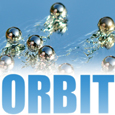Getting a buzz out of blogging: Difference between revisions
(Created page with "{{ResourcePageGroupMenu|vital}} {{Rinfo |title= Getting a buzz out of blogging |topic=Blogs |subject=Primary, Secondary, Teacher Education |resourcenumber=TE0025 |age= Primar...") |
No edit summary |
||
| (16 intermediate revisions by 3 users not shown) | |||
| Line 1: | Line 1: | ||
{{ResourcePageGroupMenu|vital}} | {{ResourcePageGroupMenu|vital}} | ||
{{Rinfo | {{Rinfo | ||
|type= Teacher Education | |||
|attribution={{VITAL}} | |||
|title= Getting a buzz out of blogging | |title= Getting a buzz out of blogging | ||
|topic=Blogs | |topic=Blogs | ||
|subject=Primary, | |subject= Secondary, Primary, Teacher Education | ||
|resourcenumber=TE0025 | |resourcenumber=TE0025 | ||
|age= | |age= | ||
| | KS4, KS5, KS3, KS2, Secondary, Primary, KS1, Higher, Secondary | ||
|content= A course based around the action research cycle, looking at the use of blogs in education. | |||
|strategy= | |||
|Learning Objectives='''Professional and reflective practitioner skills''' | |||
At the completion of this course, students should be able to: | |||
* identify opportunities for the effective use of blog supported learning activities linked to your curriculum plans, | |||
* reflect on, and discuss, the impact of the use of a blog on learning. | |||
'''Practical skills''' | |||
At the completion of this course, students should be able to: | |||
* set up a blog including options for comments and syndicating feeds, | |||
* publish a blog entry and comment on other blogs, | |||
* incorporate text and other media on a blog page, | |||
* manage users (authors, reviewers etc) of a blog. | |||
'''Knowledge and understanding''' | |||
At the completion of this course, students should be able to demonstrate an understanding of: | |||
* the issues involved in selecting the appropriate blog tool for your context and intended learning purpose, | |||
* key copyright and e-safety issues when creating and sharing content on a blog. | |||
'''Cognitive skills''' | |||
At the completion of this course, students should be able to: | |||
* critically review the use of blogs in educational contexts and share these reviews with others, | |||
* discuss different ways in which blogs might be used in learning contexts in schools. | |||
|additional resources= | |additional resources= | ||
|useful information= | |useful information= | ||
|related resources= | |related resources=[[Blog skills for subject specialists]], [[Blogging beyond social networking]] | ||
|other=Duration of the course: 20 hours over eight weeks | |other=Duration of the course: 20 hours over eight weeks. | ||
|format= Various online activities. | |format= Various online activities. | ||
|resources=http://www.vital.ac.uk/community/mod/oucontent/view.php?id=1545 | |resources= | ||
Users must register with the VITAL website (free registration) before they can access the resource. | http://www.open.edu/openlearnworks/course/view.php?id=29 (open access) | ||
<!-- http://www.vital.ac.uk/community/mod/oucontent/view.php?id=1545. Users '''must register''' with the VITAL website (free registration) before they can access the resource. --> | |||
|final=yes | |||
}} | }} | ||
[[Category:Primary]] [[Category:Secondary]][[Category:Teacher Education]] [[Category:External Resource]] | [[Category:Primary]] [[Category:Secondary]][[Category:Teacher Education]] [[Category:External Resource]] | ||
Latest revision as of 18:36, 31 January 2015
- Blog skills for subject specialists
- Copyright: keep it legal
- ESafety KS1
- Getting a buzz out of blogging
- ICT support in education (practitioner)
- Introduction to games
- Learning platforms all aboard
- Learning together developing wikis
- Learning together introducing wikis
- Making games and motivating learners KS2
- Multimedia skills and applications
- Researching and evaluating a digital game for the classroom
- Sharing ideas - developing wikis (primary)
- Sharing ideas introducing wikis
- The potential of technology
- Using the game Spore to motivate learners KS3
- Website development skills and applications
- Working with multimedia
- Wow them with wikipedia
- Writing using multimodal approaches KS1
- Writing using multimodal approaches KS3
About. A course based around the action research cycle, looking at the use of blogs in education.
Pedagogical content. Starting with the basic principles of blogs(tool) and blogging, this primary course looks at their use within education and how they can be used to improve teaching and learning. The focus is particularly on blogs as an ICT(i) tool for collaboration(ta) which encourages the effective use of reasoning(ta) and language(ta). The unit also discusses practical elements such as e-skills(topic) and copyright(topic) issues you might encounter in blogging. (edit)
| Resource details | |
| Title | Getting a buzz out of blogging |
| Topic | [[Topics/Blogs|Blogs]], [[Topics/E-skills|E-skills]], [[Topics/Copyright|Copyright]] |
| Teaching approach | [[Teaching Approaches/Language|Language]], [[Teaching Approaches/Collaboration|Collaboration]], [[Teaching Approaches/Reasoning|Reasoning]] |
| Learning Objectives | Professional and reflective practitioner skills At the completion of this course, students should be able to:
Practical skills At the completion of this course, students should be able to:
Knowledge and understanding At the completion of this course, students should be able to demonstrate an understanding of:
Cognitive skills At the completion of this course, students should be able to:
|
| Format / structure | Various online activities. |
| Subject | [[Resources/Secondary|Secondary]], [[Resources/Teacher Education|Teacher Education]], [[Resources/Primary|Primary]] |
| Age of students / grade | [[Resources/KS5|KS5]], [[Resources/Secondary|Secondary]], [[Resources/Primary|Primary]], [[Resources/Higher|Higher]], [[Resources/KS1|KS1]], [[Resources/KS4|KS4]], [[Resources/KS3|KS3]], [[Resources/KS2|KS2]]
|
| Related ORBIT Wiki Resources | |
| Other (e.g. time frame) | Duration of the course: 20 hours over eight weeks. |
| Files and resources to view and download | http://www.open.edu/openlearnworks/course/view.php?id=29 (open access)
|

